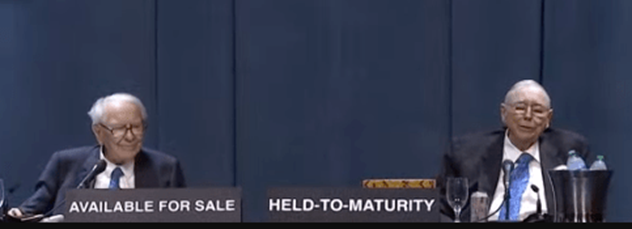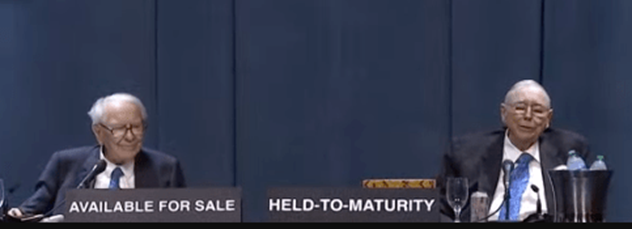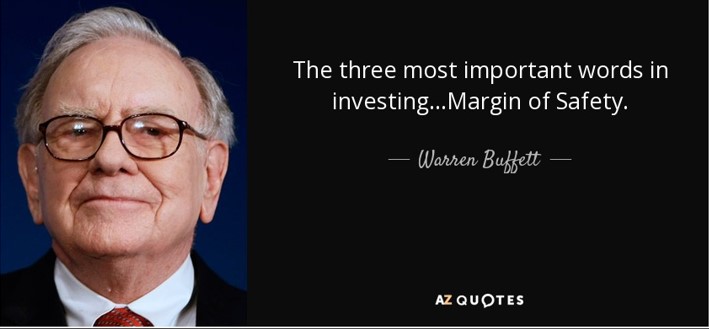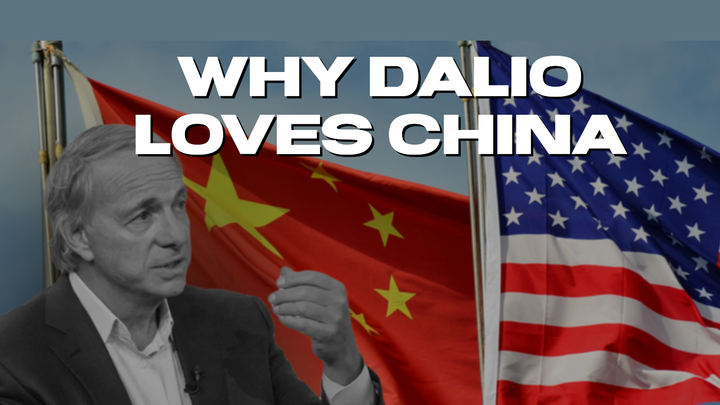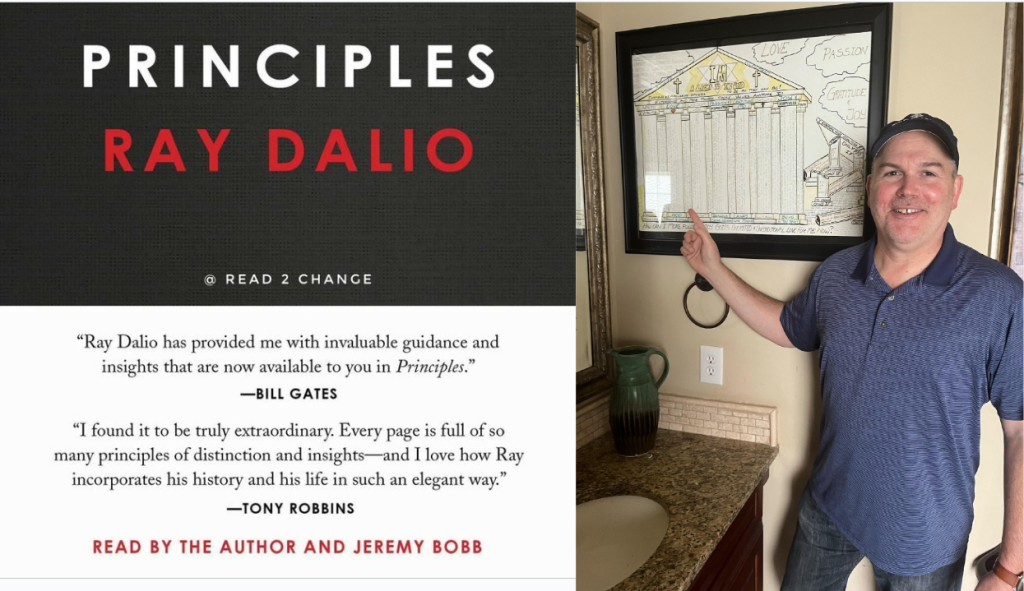Would Warren Buffett Want You as a Partner?Notes from the 2023 Berkshire Hathaway Annual Meeting
A Win on SaturdayWe ordered up perfect weather and a win for the Lookouts game on Saturday night. Getting a chance to spend time with clients and their families is something we always look forward to every year. My kids have “grown up” going to the Lookouts game and I can still remember when Jack showed up for his first baseball practice looking for Louie the Lookout. I enjoy seeing the sense of wonder in the eyes of kids and grandkids every year. Although I will soon have three teenagers at home, they were all able to make it this year. Jack and Sydney did not stay long, but Walker enjoyed the entire game. One of the last pictures I have of my father is the one holding Jack at the Lookouts game when he was just a couple of months old. Pictures like these bring back fond memories and sometimes makes me wish we could freeze time when the kids were not quite as “grown up” as they want to be now. |
|
|
Berkshire Annual Meeting – Updates from 2022This year the Berkshire Hathaway annual meeting was being held on the same day as the Lookouts Event. I was able to watch, Berkshire’s “King Charles” – Charlie Munger and the “Oracle of Omaha” – Warren Buffett hold court on Sunday after Church. I noticed quite a few differences between the 2022 Annual Meeting and the 2023 Annual Meeting, however. Last year while the stock market was acting weak, Berkshire Hathaway was buying and increasing stakes in Chevron, Oxidental Petroleum, Paramount Global, Ally Bank, Hewlett Packard, Activision and Citigroup We feel we could do a lot worse than choosing to buy some of the same companies that Buffett is buying. In addition to owning Berkshire Hathaway in client portfolios, we have also bought Oxidental Petroleum, Paramount Global, Ally Bank, and Hewlett Packard over the last twelve months. In some cases, we were able to pick up shares at more attractive prices than Buffett. Our more recent purchases of Paramount Global and Ally Bank have occurred within 10% of the 3-year lows, going back to just after the pandemic lows. Considering Buffetts’ preferred holding period is forever. we anticipate Buffett may also be increasing his stakes of these companies at these prices. This year, Buffett has been raising a war chest of cash. Recently, Berkshire Hathaway raised at least $130 billion of cash & short-term treasuries for future purchases. He has expressed that he wants to be able to pick up values (presumably in the banking sector) when the opportunity presents itself. Neither Munger nor Buffett mentioned any recent purchases other than five new small positions in Japanese trading companies from late in the fourth quarter. |
|
|
|
Buffett mentioned liquidations of some bank holdings over the past few months. In client portfolios we also liquidated all financial company holdings before the end of 2022. The March selloff in regional banks and financials in general gave us an opportunity to pick up a few values and we anticipate prices may go even lower for additional banks, insurance companies and other financial entities before the end of the year. We will look forward to picking up a few of these at even lower prices and while we prefer to only see our purchases increase in value, we welcome the opportunity to buy more at even lower prices when “Mr. Market” offers up good values in great companies or great values in good companies. When will Buffett Start Buying?Despite his roots as a value investor whose favorite holding period is forever, in recent years Warren Buffett has been known to value quality companies over an appealing purchase price. In Superinvestors of Graham and Doddville he writes how those with the correct temperament and training have proven to have outperformed market indices over time. Of course, we are probably asking too much for any investor to always outperform. Buffett’s acumen seemed to have disappeared in recent years and in the late nineties when markets grew more speculative. Berkshire Hathaway share price appreciation actually fell behind that of the S&P 500 and the Nasdaq in the ten years ending December 31st, 2020. His long-term track record speaks for itself and it is hard to find anyone who comes close to this when looking back over multiple market cycles, however. Buffett invests in what he understands, owning companies with strong competitive advantages and strong management teams. In his early years, he sought to find companies selling at great prices, often lower than breakup value. His second in command Charlie Munger has been instrumental in helping him focus on higher quality companies they want to own and waiting for prices to fall within their price range. In the first quarter it seems that Buffett felt that many companies were more likely to move lower into his price range and wanted to be able to strike when “Mr. Market” moved the shares to the bargain bin. Prior to the bank selloff in mid March, we had also been shifting a greater percentage of portfolios to short term bonds and cash. We reduced our cash holdings when the market offered up some of these financial companies at more attractive prices, but we are once again looking to free up additional cash going into the summer months. |
|
|
Warren Buffett’s PatiencePatience remains an underappreciated investing attribute. But it is one of the reasons Buffett has been so successful. Buffett refuses to invest if he cannot find what he feels are good values. When speculative excesses of the late 1960s drove prices to a level where he felt he could no longer perform for his partners, Buffett shut down operations in 1969. The markets entered into a long, drawn-out bear market than bottomed in 1974. Asked by Forbes how he felt about the stock market after prices had come down, Buffett Responded, “Like an oversexed guy in a harem. Now is the time to start investing.” Buffett and Munger are not ones to telegraph what they are doing in the markets until the regulations force them to disclose these actions. They hold their cards very close to the vest. As they note in the Berkshire Hathaway Owners Manual, “Good investment ideas are rare, valuable and subject to competitive appropriation just as good product or business acquisition ideas are.” From what we know of their actions recently, they have been reloading their cash coffers, getting ready to pounce when the opportunity presents itself. When asked about how he feels most value investors will fare over the coming years, Charlie Munger noted that the competition is much stiffer now than it was 50 – 60 years ago especially when it becomes so easy to screen for the types of companies Buffett and his mentor Ben Graham focused on before partnering with Munger. Buffett noted that as long as the investing public continues to focus on daily price movements, quarterly earnings and short-term trends rather than an enduring moat in a superior business, strong management, and long-term prospects for businesses over decades rather than quarters, the public will continue to “do stupid things”. He feels that investors will do well capitalizing on the stupidity of those with time horizons that are increasingly short term focused. |
|
|
What Types of Partners does Buffett Prefer?When he first started, Buffett wanted to make sure that those who invested with him were a good fit, understood his process and practiced enough patience to allow Buffett to do his best for them. Last year we produced an article which outlined the ground-rules for being a partner with Buffett when he first formed his investment partnership in 1956. You can read about these in “What we can Learn from a Young Warren Buffett.” Buffett prefers his partners to understand Ben Graham’s principles of Value Investing, practice rational thought when others are overly greedy or fearful, have a long-term time horizon, and think of investing as owning a piece of a business. Those who get overly emotional, pay too much attention to price movements and feel that a market drop increases risk rather than producing more opportunity may not be the best fit to work with a Value investor like Buffett and Munger. Below are a few select quotes from Mr. Buffett. Correct Temperament –“I am not in the business of predicting general stock market or business fluctuations. If you think I can do this, or think it is essential to an investment program, you should not be in the partnership.” – From Buffet Partnership Groundrules. “A simple rule dictates my buying: Be fearful when others are greedy and be greedy when others are fearful. The most important quality for an investor is temperament not intellect. You need a temperament that neither derives great pleasure from being with the crowd or against the crowd. The key to success is emotional stability. Games are won by players who focus on the playing field — not by those whose eyes are glued to the scoreboard. If you cannot control your emotions, you cannot control your money. Failure comes from ego, greed, envy, fear, imitation. I have success not because I am smart, but because I am rational. A market downturn doesn’t bother us. For us and our long-term investors, it is an opportunity to increase our ownership of great companies with great management at good prices. Only for short term investors and market timers is a correction not an opportunity.” Ownership Mentality –“Charlie’s family has the majority of its net worth in Berkshire shares; I have more than 98%. Charlie and I cannot promise you results. But we can guarantee that your financial fortunes will move in lockstep with ours for whatever period of time you elect to be our partner. We have no interest in large salaries or options or other means of gaining an “edge” over you. We want to make money only when our partners do and in exactly the same proportion. Moreover, when I do something dumb, I want you to be able to derive some solace from the fact that my financial suffering is proportional to yours.” – From Berkshire Hathaway Ownership Manual |
|
|
Forever Holding Period –“Charlie and I hope that you do not think of yourself as merely owning a piece of paper whose price wiggles around daily and that is a candidate for sale when some economic or political event makes you nervous. We hope you instead visualize yourself as a part owner of a business that you expect to stay with indefinitely, much as you might if you owned a farm or apartment house in partnership with members of your family. For our part, we do not view Berkshire shareholders as faceless members of an ever-shifting crowd, but rather as co-venturers who have entrusted their funds to us for what may well turn out to be the remainder of their lives.” Patience –“The Stock Market is designed to transfer money from the Active to the Patient. Successful investing takes time, discipline and patience. No matter how great the talent or effort, some things just take time. You can’t produce a baby in a month by getting nine women pregnant. Don’t take yearly results too seriously. Instead, focus on four and five year averages.” “Sound Investing can make you very wealthy if your not in too big a hurry. If you don’t feel comfortable owning something for 10 years, then don’t own it for 10 minutes.” Value Orientation –“I cannot promise results to partners. What I can and do promise is that: a. Our investments will be chosen on the basis of value, not popularity; b. That we will attempt to bring risk of permanent capital loss (not short-term quotational loss) to an absolute minimum by obtaining a wide margin of safety in each commitment and a diversity of commitments; and c. my wife, children and I will have virtually our entire net worth invested in the partnership.” – From Buffett Partnership Groundrules. “There are three important principles to the Graham (Value) approach. The first is to look at stocks as fractional shares of a business which gives you an entirely different view than most people who are in the market. The second principle is the margin of safety concept which gives you the competitive advantage. The third is having a true investor’s attitude toward the stock market. If you have that attitude, you start out ahead of 99 percent of all the people who are operating in the stock market. It’s an enormous advantage.” “Most people get interested in stocks when everyone else is. The time to get interested is when no one else is. You can’t buy what is popular and do well. The best thing that happens to us is when a great company gets into temporary trouble…We want to buy them when they are on the operating table. Long ago, Ben Graham taught me that ”Price is what you pay; value is what you get.” Whether we’re talking about socks or stocks , I like buying quality merchandise when it is marked down.” . In our view, though, investment students need only two well-taught courses – How to Value a Business, and How to Think About Market Prices.” Buffett eats his own cooking. This is the most important proven metric to determine how well an asset manager does over time. Many studies have been conducted about this. A great article Warren wrote about Value Investors outperforming over time is. |
|
|
Risk and Beta –“The greater the potential for reward in a value portfolio, the less risk there is. Risk can be greatly reduced by concentrating on only a few holdings. The true investor welcomes volatility… a wildly fluctuating market means that irrationally low prices will periodically be attached to solid businesses. Risk comes from not knowing what you are doing. Beware of geeks bearing formulas. Read Ben Gram and Phil Fisher. Read annual reports, but don’t do equations with Greek letters in them. To invest successfully, you need not understand beta, efficient markets, modern portfolio theory, option pricing or emerging markets. You may in fact, be better off knowing nothing of these. That, of course, is not the prevailing view at most business schools, whose finance curriculum tends to be dominated by such subjects “No formula in finance tells you that the moat is 28 feet wide and 16 feet deep. That’s what drives the academics crazy. They can compute the standard deviation and betas, but they can’t understand moats.” Margin of Safety –“Intrinsic value is an all-important concept that offers the only logical approach to evaluating the relative attractiveness of investments and businesses. Intrinsic value can be defined simply: It is the discounted value of the cash that can be taken out of a business during its remaining life.” “Overall, Berkshire and its long-term shareholders benefit from a sinking stock market much as a regular purchaser of food benefits from declining food prices. So when the market plummets – as it will from time to time – neither panic nor mourn. It’s good news for Berkshire.” |
|
|
Selected Quotes from the 2023 Annual Meeting“Taiwan Semiconductors is one of the best managed companies and important companies in the world, and I think you will be able to say that 5 – 10 – 20 years from now. There is no other company in the chip business that is in their league, at least in my view.” Warren Buffett
“The gamier it gets and the more it looks like investment banking, the less I like it.” Charlie Munger on Banks
“The American public is as confused about banking as ever and that has consequences. You don’t know what has happened to the stickiness of deposits at all. We are very cautious about ownership of banks.” Warren Buffett – Berkshire still owns significant positions in Bank of America and Ally Bank
“At some point, printing money to buy votes will be counter-productive.” Charlie Munger on Congressional Spending Bills and Fiscal Policy
“We can do a lot of dumb things and get away with it. We can’t do an unlimited number of these things. A lot of politicians don’t really think about what the consequences of their actions could be. (with regard to fiscal spending) It’s also madness to just keep printing money. “ Warren Buffett
“Spend less than you earn, avoid toxic people and activities, and keep learning throughout your life.” Charlie Munger
“Your best defense to a devaluing dollar is your own earning power.” Warren Buffett
“The hollowing out of the downtowns in the United States and elsewhere in the world is going to be quite significant and quite unpleasant.” Charlie Munger and Buffett both predicted problems ahead for commercial real estate. |
|
Forbes Recognized Joe Franklin as one of the Top Advisors in Tennessee |
|
|
|
|

